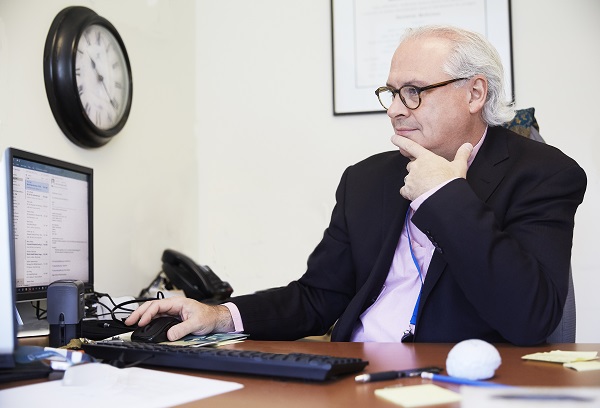By Dr. David Attwood
No one thinks schizophrenia is their problem- until it is.
The numbers are difficult to hear. One out of every 100 people live with schizophrenia. In Ottawa alone, 200-300 people will develop this brain disease this year. Schizophrenia is a disorder of psychosis and cognition that can dramatically impact how a person perceives themselves and the world around them, yet despite that, most struggle to recognize the need for assistance.
The good news is that the first episode of psychosis is very treatable, and about 90 per cent of people who have experienced the first episode of psychosis will achieve remission within one year of treatment.
The bad news is that 85 per cent will have a serious relapse within five years.
When I was a younger doctor, I imagined genetics would become the key to diagnosing and treating schizophrenia, but over the last 20 years, we have discovered more than 100 genes involved in this illness – all of them contributing a little bit, but not a single one of them diagnostic, or offering clear treatment directions.
The most remarkable thing about the genetics of schizophrenia is that we know family history is the largest factor in developing the illness, yet about 90 per cent of individuals do not have a parent with schizophrenia and over 60 per cent not even a first degree relative.
Allow that to sink in. For many families, this illness comes completely out of the blue.
Usually, by the time a person gets to The Royal’s Integrated Schizophrenia Recovery Program, they have seen several psychiatrists, acquired several diagnoses, and had a few efforts at treatment, perhaps even several hospitalizations. So when I see someone new, they are not new to this at all.
The statistics are sobering.
Around 20 per cent of our clients will get stable jobs, about 30 per cent will live independently, 35 per cent will ever get married, and only about 14 per cent will maintain a meaningful recovery. Yet, we remain devoted to creating that possibility.
It’s estimated that over 50 per cent of people who are unhoused have schizophrenia. Sadly, most people who have schizophrenia die about 20 years earlier than their peers, and often from treatable medical illnesses. Most tragically, while one per cent of people with schizophrenia die by suicide each year, this group accounts for 12 per cent of the annual total suicides in Ontario, with a lifetime risk of suicide just under 10 per cent – yet it is a constant struggle to access long term assistance.
As schizophrenia is a stigmatized, yet highly treatable, severe psychiatric disorder, it requires a robust and highly integrated continuum of care.
The Ottawa Regional Psychosis Clinic is a community-based model designed to bridge this gap in the continuum of care for clients and families experiencing severe and persistent psychotic disorders. The clinic will provide effective long-term therapies, including early and easy access to long-acting injections and clozapine, and can be integrated into existing community-based services, as well as cognitive behavioural therapy, family therapy, recovery and rehabilitation services. It is also exciting to note that all patients can volunteer to participate in cutting edge research, including fascinating studies in neuroimaging, electrophysiology, sleep, and cognition at The Royal.
Thanks to a transformational $2.5 million gift of philanthropic support from the Ozerdinc Grimes family, we are able to retain a team of experts supporting the newly established Ozerdinc Grimes Family Regional Psychosis Clinic, set to open this fall through 2025.
This gift will help an additional 1,000 people living with schizophrenia and their families to access quality standard-based care while connecting them to ground-breaking research. With rigorous education and evaluation embedded in the clinic, we will make a case for sustainable ongoing funding from the government.
Schizophrenia is a life-long illness. We are committed to providing our patients with the diagnostic and treatment tools they need while connecting them to a quality-based system of care, and staying with them for as long as they need us.
We also know we need to focus on families, because this is a family illness, and we want to reassure parents and loved ones that their person is getting the best care they can get, anywhere.
Dr. David Attwood, MD, FRCPC is Assistant Professor, University of Ottawa, and Clinical Director, Integrated Schizophrenia Recovery Program, The Royal.


